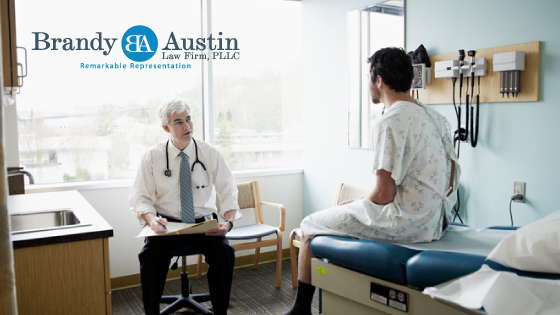
Incidents resulting in personal injuries often require varying levels of medical treatment. In a world saturated with advancing technology, accidents occur every day throughout the United States. Medical treatment can cost patients thousands of dollars with insurance; however, without coverage, uninsured patients are left to foot even heftier out-of-pocket bills, even if the patient was not at-fault in the acquisition of the injuries. Unfortunately, victims are typically initially responsible for any medical treatment they receive in response to an accident. Immediately after treatment, many medical facilities expect uninsured patients to pay high out-of-pocket costs to cover any incurred expenses. Once an individual files a personal injury claim against the at-fault party, it may take months for that individual to receive any form of financial relief. There are a few steps that these uninsured victims can do to manage or prevent such financial burdens:
- Acquire Preventative Insurance Policies. Some states require drivers to carry some form of personal injury protection coverage. While personal injury protection plans are not equivalent to standard health insurance policies, they often will cover a significant portion of unexpected medical expenses following a serious accident. It is notable that while these plans can be extremely useful to injured parties, they generally have a strict limit for the amount of coverage available for medical expenses. Once the limit has been reached, any further medical treatments will have to be paid for out of the patient’s own pocket.
- Review Medical Payment Coverage. Similar to personal injury protection plans, some car and property insurance companies offer limited medical payment coverage. If a victim’s insurance contains a med pay provision, the party can use this to pay for some of the incurred medical bills. Unfortunately, like personal injury protection policies, med pay coverage amounts are limited and, once exhausted, any other expenses will need to be paid for out of pocket.
- Seek Coverage Under Medicaid. Accidents may result in patients not being able to work or fulfill responsibilities for an extended period of time. If an individual is out of work for a substantial period, that injured party may qualify to receive insurance coverage under Medicaid, which is a government program that provides resources for needy and disabled Americans. If a patient does qualify for Medicaid, medical institutions will provide the required treatments at little to no out-of-pocket expense. Consequently, that patient will be entitled to receive coverage until he/she is able to return to work.
- Contact Medical Providers. Some medical providers offer payment plans for patients who can produce appropriate documentation and general details involving the causation of the injuries. Other providers may be able to accept a letter of protection from an attorney’s office. Patients who require extensive medical treatment may be able to contact the billing department of certain medical institutions and establish payment plans to lessen the burdens of such enormous financial responsibilities. Many patients do not realize that unpaid bills may be sent to collection agencies and dramatically hurt a patient’s credit score, even if they were not at fault in the accident.
- Inquire about the Cash Price. Individuals without insurance are entitled to inquire about the cash price of particular medical treatments upon completion. Many providers offer those without health insurance lower prices for most medical procedures. Consequently, a simple inquiry into the cash price may be able to lower the overall cost of treatment after an accident.
- Request Copies of Medical Bills. Requesting copies of medical bills allows all patients, insured and uninsured alike, to truly understand the costs associated with the medical treatments obtained. Additionally, reviewing medical records encourages injured parties to discuss individual fees with billing departments and, in some cases, even negotiate for lower rates.
- Visit Community Health Clinics. While not always ideal depending on injury severity, local health clinics are available in almost every community throughout the country. These clinics provide some of the most necessary treatments, such as preventive screenings, vaccinations, and minor injury care without the hefty price tags of larger medical centers. Some clinics even specialize in offering free or low-cost treatment to uninsured, needy citizens. Walk-in clinics are also readily available, especially in urban areas.
- Contact a Personal Injury Attorney Immediately. Being the victim of an accident should never bankrupt any individual, regardless of insurance status. Any party involved in an accident should contact a personal injury attorney immediately to begin recovering damages. As soon as representation is secured, the attorney will create a demand package to outline all the damages incurred as a result of the accident. The package will then be presented to the at-fault driver’s insurance company; the company then has the option to accept, reject, or negotiate a new settlement amount. Regardless, the retained attorney will ensure that an injured plaintiff will be reimbursed for medical expenses to the fullest extent allowed under the law.
Accidents are never convenient and can result in thousands of dollars in damages. Aside from property damage, victims may sustain serious bodily injuries that require expert care and extensive treatment. Regardless of insurance status, all personal injury victims should be able to obtain any necessary treatment without the fear of devastating medical bills.
Contact Brandy Austin Law Firm, PLLC for your free consult today (817)841-9906.
